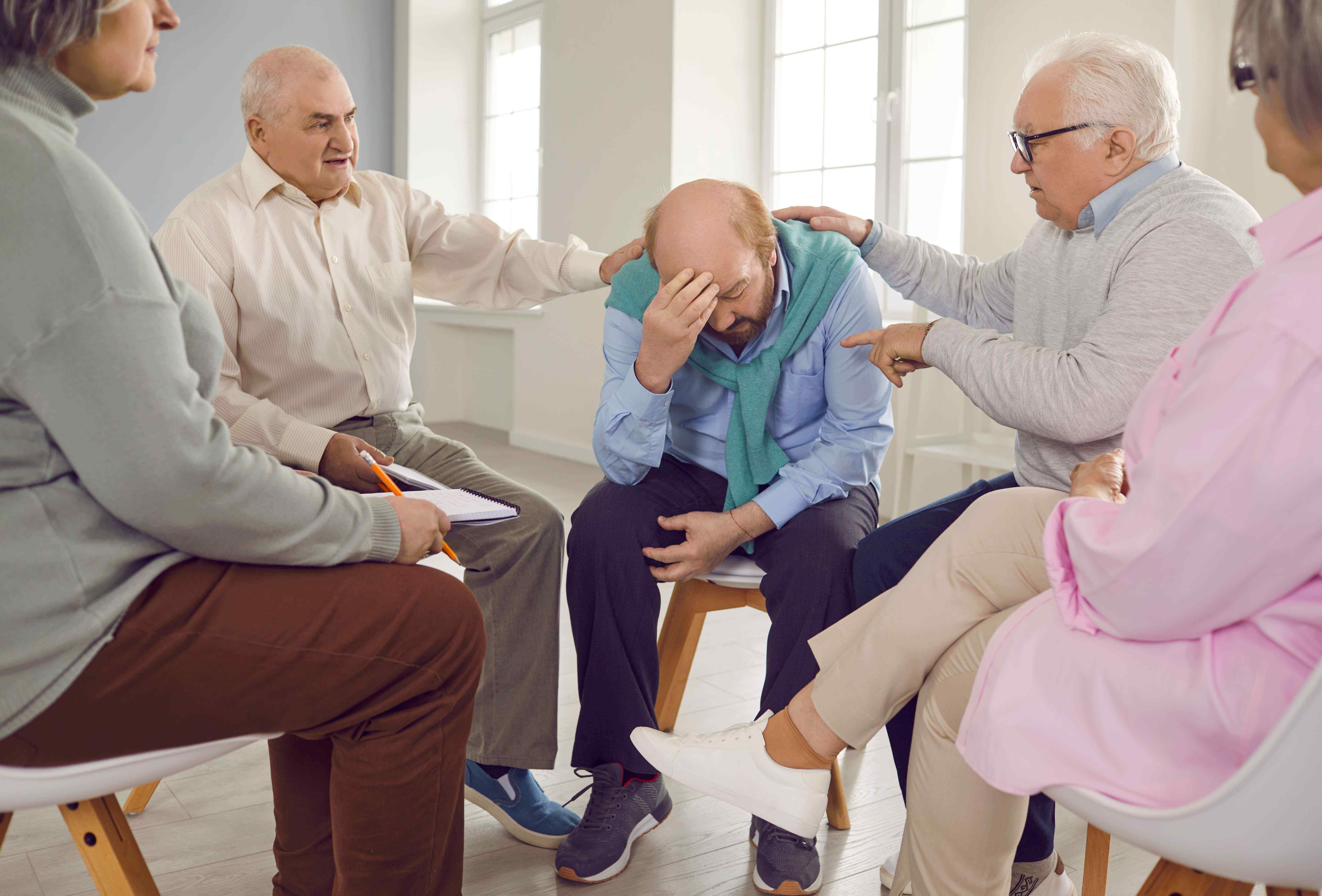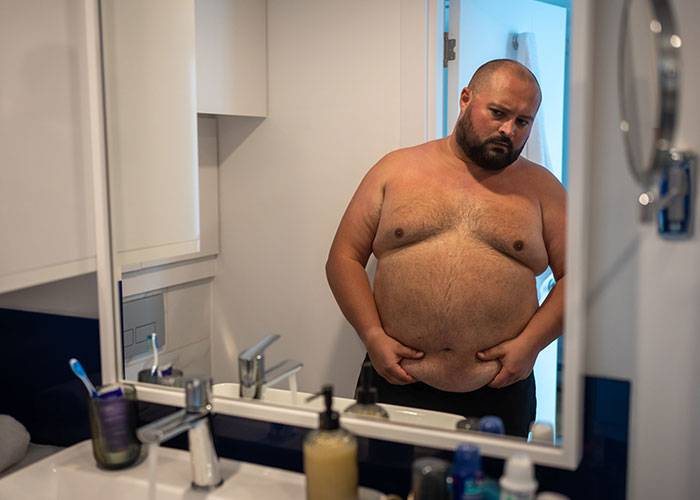Syleena Johnson’s Last Stand: The R&b Diva Breaks Down New ‘legacy’ Album & Her Late Father’s impact

Casual music listeners may recognize Syleena Johnson’s soulful, magnetic voice from “All Falls Down,” her 2004 Grammy-nominated Billboard Hot 100 hit (No. 7) with Ye (the artist formerly known as Kanye West). Yet there is several decades’ worth of music history coursing through those vocal cords.
Related
Johnson, the daughter of the late soul giant Syl Johnson, is getting ready to unleash what she says is her final solo studio album on Friday (Aug. 30). And, as she explains to Billboard over Zoom, the road has not been easy.
“This album is probably my best work, and it is whooping my ass!” she quips. “It wouldn’t be this good if there wasn’t some drama that was attached to it.”
Johnson is frazzled over the final mixes for Legacy, which serves not only as her final solo LP, but also a painstakingly crafted tribute to her late father. Led by the revelatory “Monsters in the Closet,” Legacy combines Johnson’s vocals with that of her late father, setting their tones and styles in conversation across 16 tracks that explore the industry-inflicted scars, the timelessness of soul music and the towering impact of Chicago’s music and culture. Featuring appearances from Twista and Shawnna, as well as fresh takes on Syl Johnson classics like 1968’s “Different Strokes,” Legacy is both a gift from a daughter to her father, and a gift from an artist to the sounds that sustain her.
Arriving in the throes of the ever-challenging balancing act that is being an R&B star and present mother — “[Creating Legacy] took time in the middle of touring, chasing around a superstar athlete kid and another child who is on the spectrum, high-functioning, mind you, and has piano and drawing class” – Johnson’s new record is a wholly family affair. The warmth of those familial ties, as well as the darkness of certain shared experiences, permeates the entire record.
Just as the contributions of her own family remind listeners of our general human connection, so does the album’s exploration of soul music, which marries the late 1950s beginnings of Syl Johnson’s discography with the 21st century sheen of his daughter’s. It’s a winning continuation of Syl Johnson’s own impact as one of the most sampled acts in hip-hop, from Public Enemy‘s “Fight the Power” to The Throne’s “The Joy.”
In a candid conversation with Billboard, Syleena Johnson pulls back the curtain on both her final album and her nearly three decades in the music industry.
Why was now the time to come back with a new record?
I was already going to come back two years ago, but my father died [in 2022], and that changed things. My father was the legacy, the pinnacle of my music. I feel like [losing him] changed the tone and scope of the album. It changed the intention of the album, and it changed my motivation of why I was creating it. It took two years, which is unheard of for a person like me [who] can create an album in a week or two. Two years means I was mourning.
Every single track has my father in it, so I was trying to make sure that [the album] honored him and highlighted him as well as myself properly. I was okay with taking my time and getting it done right. The time is now, not because I chose it, but because God designed it for this time. Why? I don’t know, but we’re gonna find out.
This is the last Syleena Johnson album. We’re going to work Legacy for as long as we possibly can, because it has so much good material. Sometimes, you let the people catch up to all of the repertoire. I have 14 albums, there’s people that don’t know those records. Hopefully, Legacy will be powerful enough to [spur interest in my back catalog]. I will be doing the Chi album [with Dave Hollister and Carl Thomas], but as far as [my own] albums, I just don’t want to do anymore.
Was there a specific moment in which you knew that this would be the final Syleena Johnson album?
Yes. I recorded eight records, and they were good. We were thinking of just doing an EP, so I went to Chicago to Toxic Studios, my producers, my musical family. I went there to touch up vocals on a record, and they started playing all this music. I just got sadder and sadder because I knew I [was going to] have to record all of these because they were so good. It was like a happy-sad moment. I was like, “Oh my God!” creatively, but the adult in me that has been in this business for over three decades was like, “Again? Okay. I’m not free. We have to continue.”
And then I realized this album is getting ready to go to a different level, That’s when I knew: I’m going to give them 16 records, give them everything I have vocally and lyrically, and I’m out. And I’m going to put my dad in it. Both of us are considered underrated, so I want us to not be underrated together in this space. I’m constantly going to be creating in some way, shape or form, but it’s the work part and [being] independent that’s just too hard.
The album literally blends your vocals with your dad’s. Why did you go for that approach instead of, say, sampling his original recordings?
First, I’m a creative, so I can’t do nothing that’s basic. I don’t want to do anything anybody’s ever done. This hasn’t been done before. Because we own the estate, it’s easier for us to get clearances – these different record companies that [own the song’s] publishing are not going to push back because it brings more money and more eyes to the project and my dad’s records.
I wanted to show people our similarities [and] the best way to show that is to put us right next to each other. There are parts of the record [where] I sound almost like my dad. I wanted to bring him in because I saw him in his last days. I saw him until his last breath. I wanted to remember him in the light that I put him in on this record.
This album has helped me understand how amazing he is as an artist. How he placed a record, why he wrote and sang certain ways, comparing his body movements onstage to my own, etc. There’s also lines on the album where he’s just talking to me and whoever listens to this album.
Did you go into the studio sessions already knowing what songs of his you wanted to bring into the fold?
No! My sister [who is also my manager and the head of our dad’s trust] is directly connected with the record label that bought my dad’s publishing right before he died. She told the producers at Toxic“ Productions, “You can create from these records,” and my dad had a whole box set.
I work with such talented producers, and one of my hopes for this project is that it blows up, gets a Grammy, and does all the things that an album can do. I want the producers to be recognized for this body of work that they helped me to create. Rafael Capone is mixing and mastering the whole project in a two-and-a-half-week period.
What was the first song that you knew was going to be on this album?
My father died on my youngest son’s birthday (Feb. 6). My son was turning 11 with a party at Sky Zone [at 10 a.m.] and my dad died at 2:00 in the morning. I had to go and be a mom, even though I was super sad.
Three weeks after that, I flew to Chicago and started recording. The very first song was “Monsters in the Closet” and the next song was “Watching Over.” Those two songs I knew for a fact were going to make the album. I couldn’t even get through recording and writing those two songs. I would be recording and just break down in tears and everybody would just stop and wait until it passed.
Every time I go in the studio, I don’t have many songs that don’t make it. That’s not my process. I record a specific amount of songs because I’m a storyteller. I don’t need to write a whole bunch of unnecessary records. That’s like if you write a book and go, “Let me write six chapters just in case.” Sometimes you will get some good records that somebody else wrote, and you save those in the vault or for a deluxe. Pretty much everything I recorded made this album except two things. I’m not a big fan of recording, I’m a live girl because that’s where you can really connect the fans with the music.
What was the most difficult part about opening yourself up on a song like “Monsters,” which draws parallels between the experiences you and father had in this industry?
There’s many stages of grieving. I was in a place where I was upset at this industry and what it had done to my father and I and our relationship. It’s an ongoing thing inside of the industry and it does it to all artists. The music business is dirty and cruel. It steals from you. It takes from you with very little deposit back into you. I’m tired of not telling the truth. We have to start telling the truth about what the hell be going on!
I know this is R&B, but we don’t always have to talk about love and pain. That’s what Marvin Gaye and Stevie Wonder and Donny Hathaway and my father did back in the day. I wanted this album to be conscious across all of its tracks.
Artists’ mental health is huge theme on Legacy, and the record drops right before Suicide Prevention Month kicks off. What do you want to see the industry do in terms of better prioritizing artists’ mental health? Have you seen anything get better (or worse) during your time in the industry?
The only that has gotten better is the fact that we [can do so much by ourselves] as independent artists. It’s not at the hands of the marketing department at your label. The flip side of that is very difficult because you have to use your own money and you have to do all the footwork, but at least you know where your money’s going.
In general, people and greed are the basis of the music industry. Because you’re dealing with artists, we are delicate in that way. We want you to like and buy into what we create because it’s tied to our actual livelihood. They don’t like it, we don’t eat. I don’t think people truly understand the depth of how stressful that can be. When you see all of these artists self-medicating, trying to calm themselves down, trying to not have anxiety, then whatever they’re using to self-medicate gets the best of them. It could kill them.
I think we need to do a better job of understanding the artists’ case and having empathy for them. We have to be these politicians and we ain’t politicians! We’re human beings and our job is to create music and soundtrack our lives. You don’t see nobody knocking on the movie score man’s house and cussing him out, and he’s creating the scores for all these movies for us to feel certain ways. But because we’re famous, we should be grateful that people even give us the time of day. Meanwhile, during the pandemic, the artist suffered the most. There’s no empathy for artists. People don’t care what happens to them. You hold us to all these high standards, and then you’re quick to forget us when it’s over.
People don’t value what we put into the world, and I feel like everybody should be valued the same.
“Black Balloon” became your first Billboard chart entry in over a decade. What did that mean to you, especially to do so alongside your dad, who’s officially credited as an artist on that track?
It’s a great moment because I’m 48. I recorded my first album at 15 [and] I am still out here. The people are still out here turning up/ I’m happy that God has allowed me to have this longevity and have and still be here in my right mind and talk regular with you, chile.
What lessons would you say were the most difficult for you to internalize throughout your career?
Trusting myself. Trusting my ears. Trusting what I really want to hear in my records and being adamant about it. I was 21 when Wayne Williams brought me into Jive Records and I would let the last say be someone else’s. Sometimes I might not be happy with it inside, but you just have to let it go. And that was that wasn’t all the time, that was rare. I was given a lot of creative freedom at Jive. It was just certain things [that] when I look back, I’m like “Shit, I should have just listened myself.” [Being an] introvert disconnected me from a lot people in times where I should have been trying to connect more. That’s another lesson: networking. And some of my introversion comes from fear of judgement, but I was very young. When you get older, you don’t give a f—k who’s around and you don’t give a damn. When you’re a young woman and trying to balance male egos, it’s tough. I don’t blame myself.


